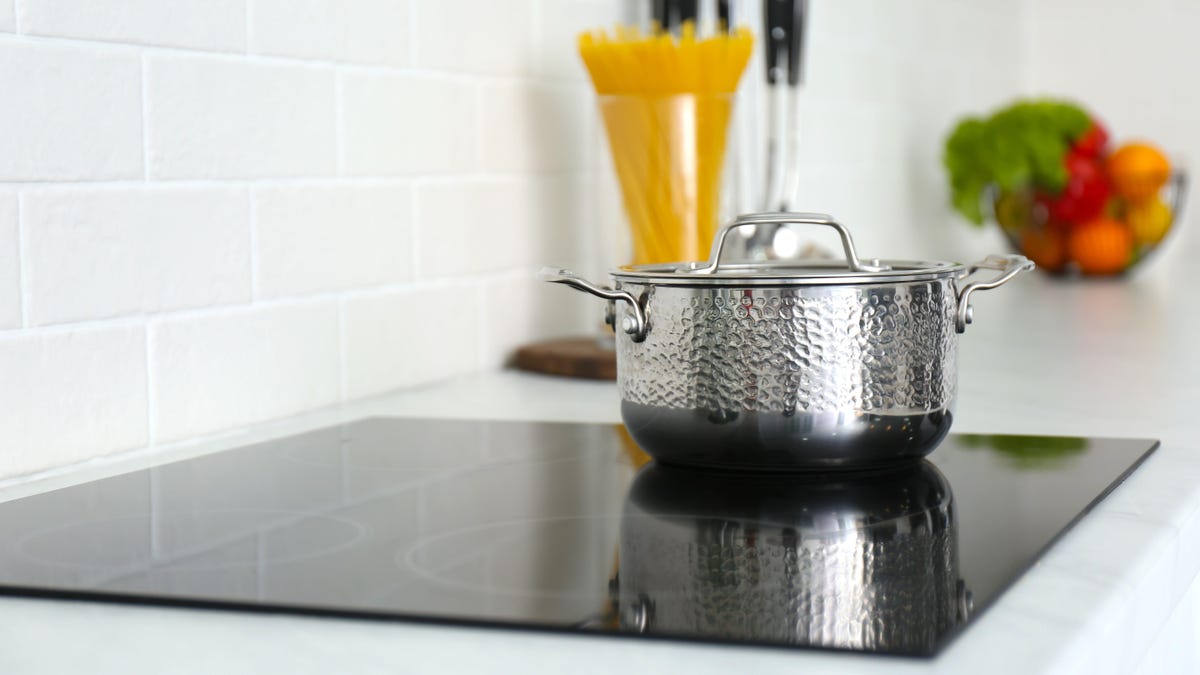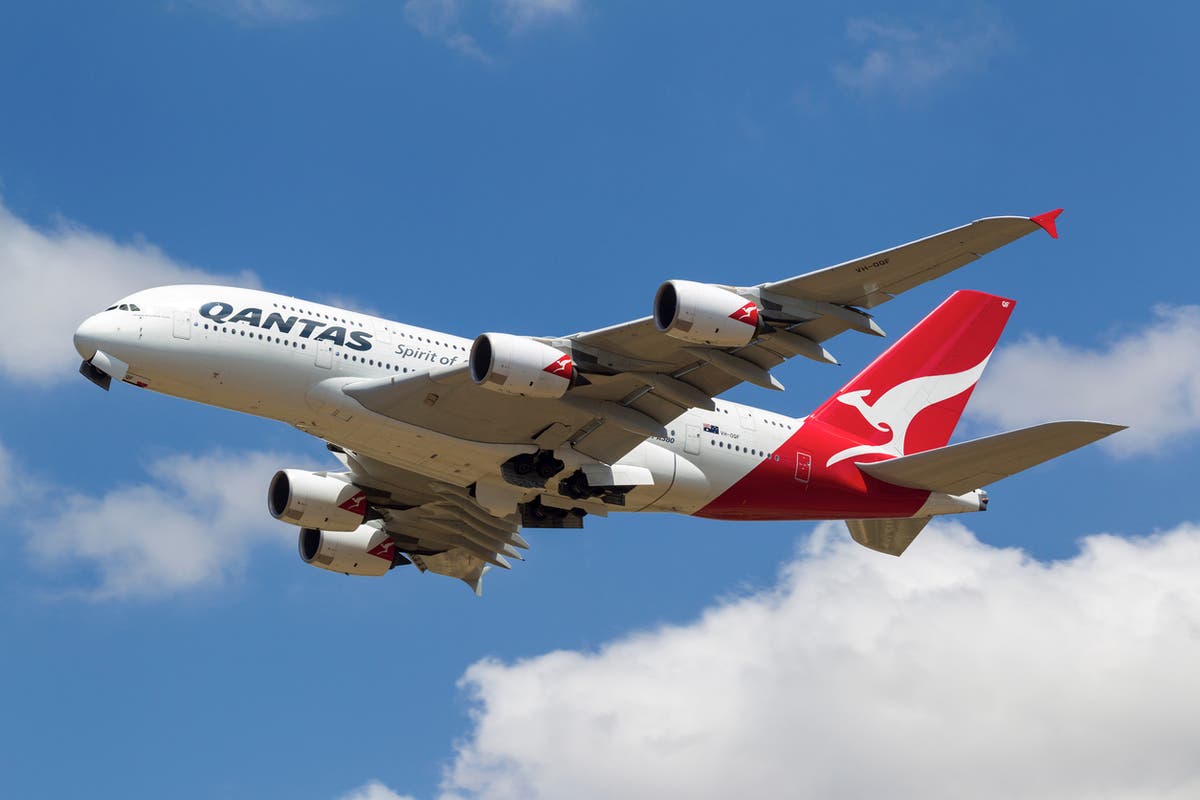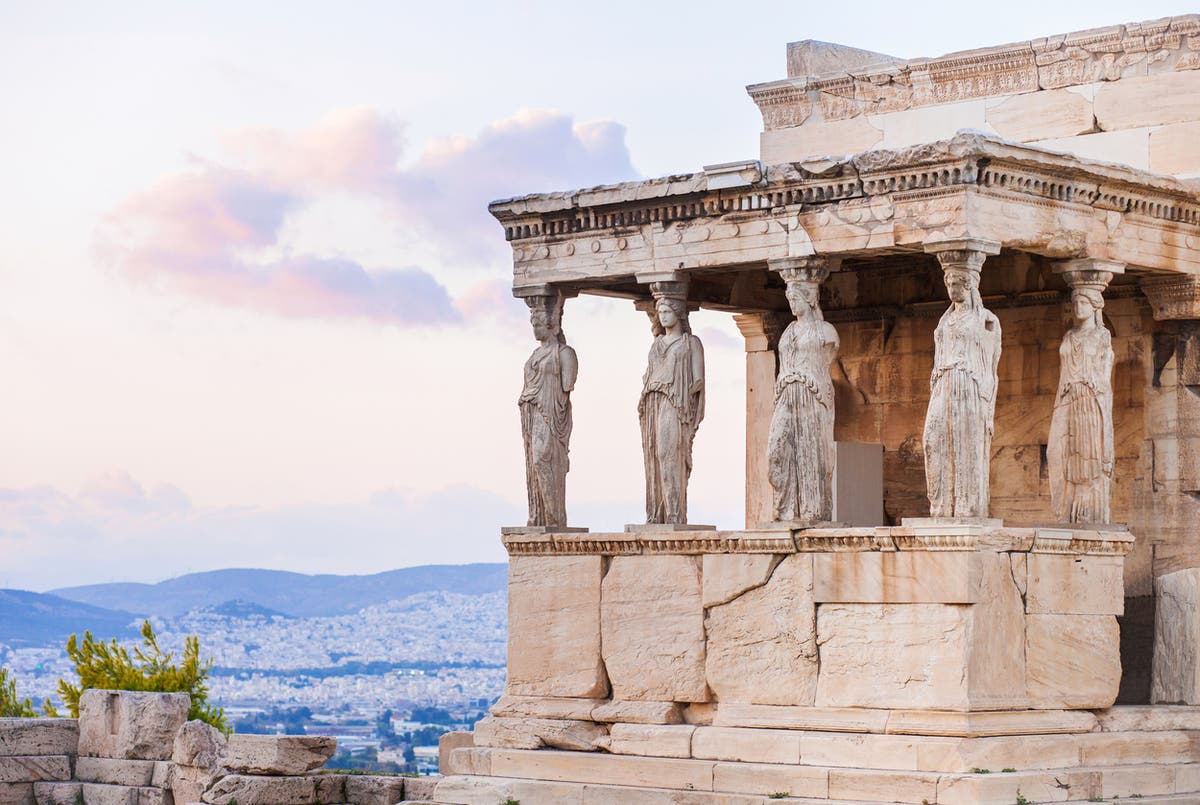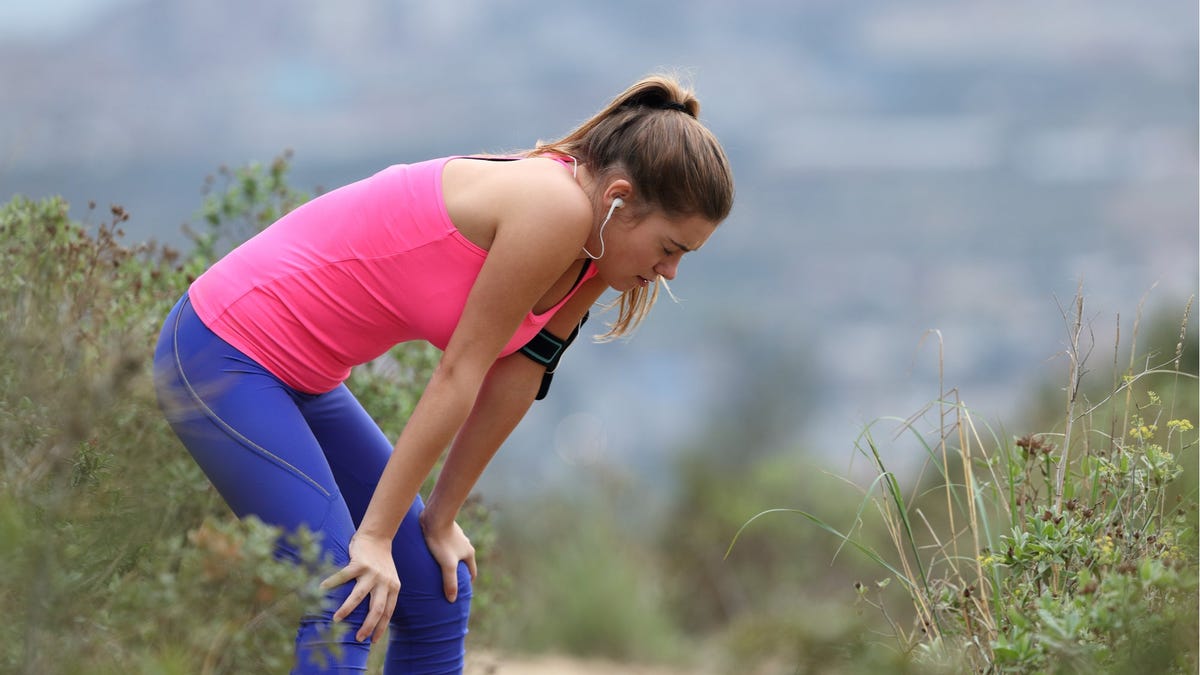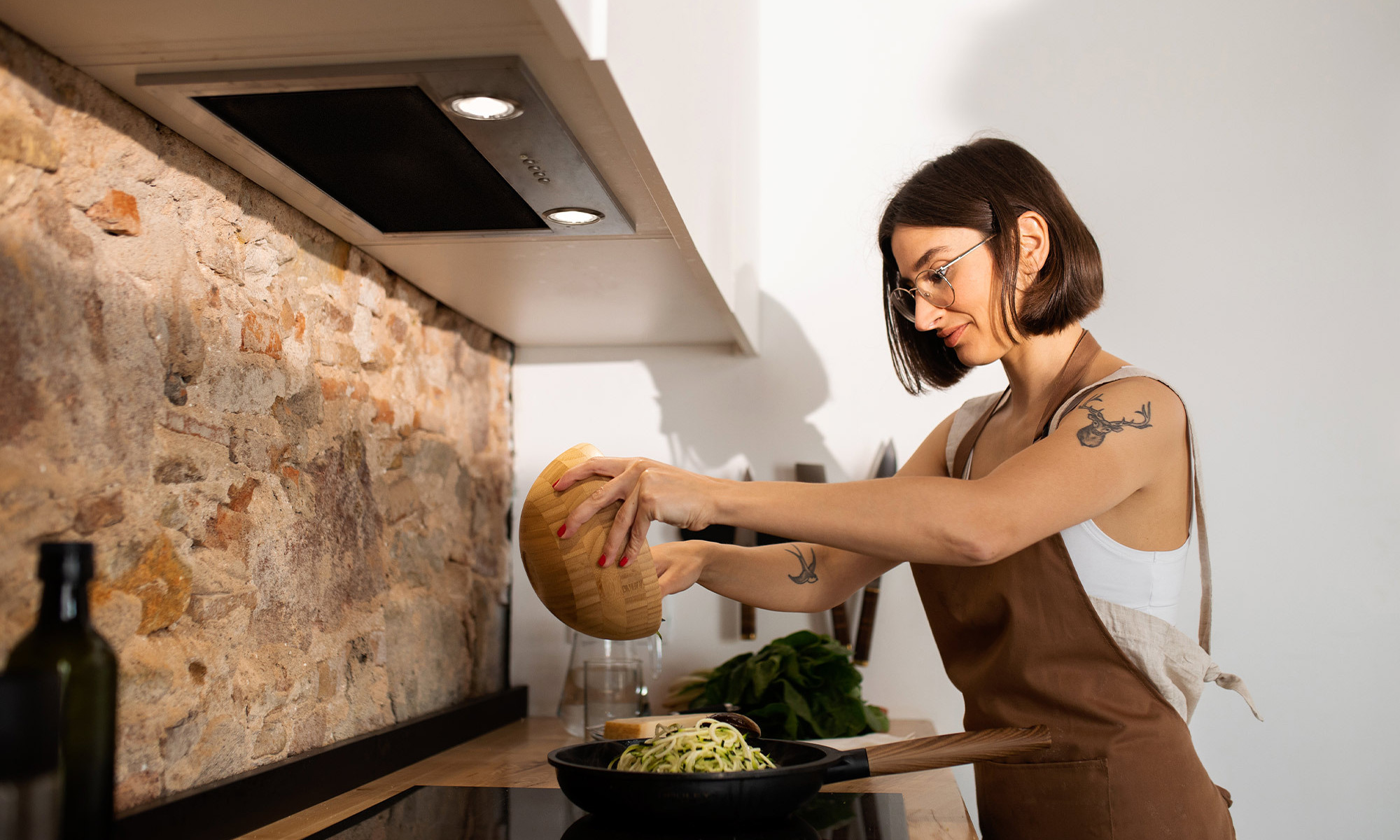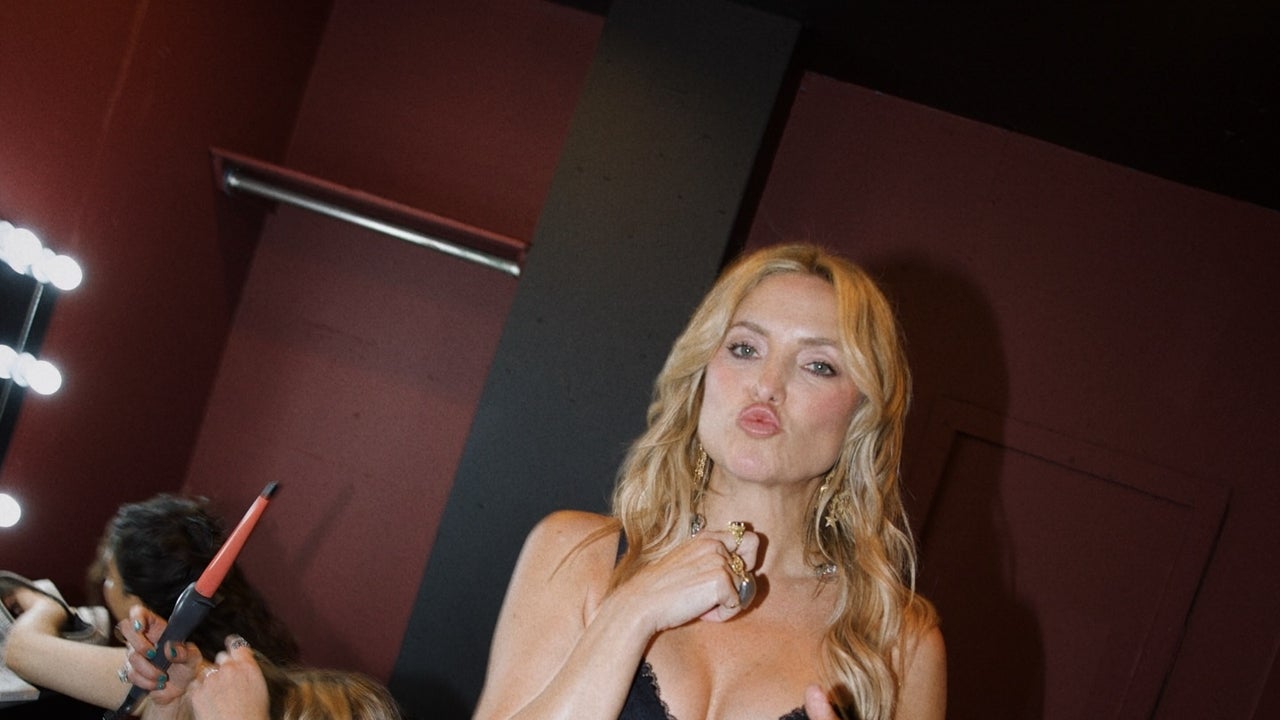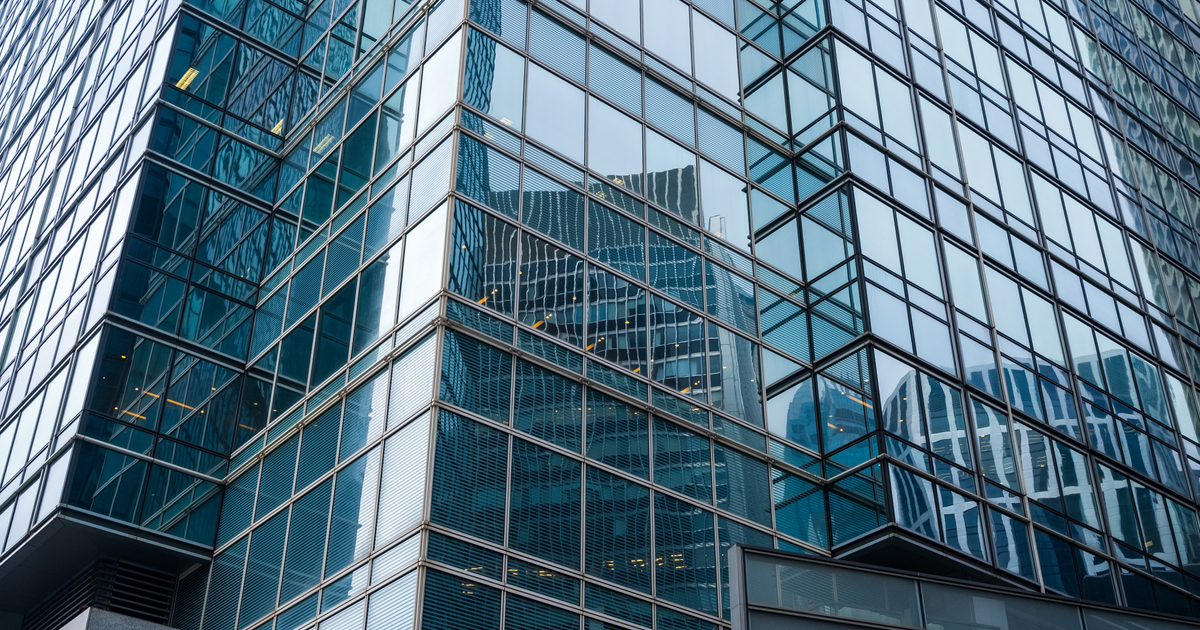Why this Canadian city has been handing out free pancakes every year since 1923
For 10 days every year, the Calgary Stampede brings rodeo, music and long-held traditions to town – one of these being the ‘pancake breakfasts’ that have been served for the past century, as Annabel Grossman discovers

Support truly
independent journalism
Our mission is to deliver unbiased, fact-based reporting that holds power to account and exposes the truth.
Whether $5 or $50, every contribution counts.
Support us to deliver journalism without an agenda.

If you took a stroll down Stephen Avenue to Olympic Plaza in Calgary any morning last week, there’s a good chance that you would have been met with a clown in a cowboy hat offering you a freshly flipped pancake.
Strange as this may seem, these free breakfasts are actually part of a tradition going back many decades in the Alberta city in western Canada. Since 1923, during the 10 days of the Calgary Stampede – the world-famous annual rodeo and accompanying festival – residents and visitors have felt the embrace of good old western hospitality by enjoying pancakes (often referred to as ‘flapjacks’ in Canada) served out the back of a horse-drawn wagon.
The earliest pancake breakfasts were held along Eighth Avenue and at a replica of a pioneer shack called the Old-Timers’ hut on the rodeo grounds. Although the Stampede had been running since 1912, it was 11 years later that the Calgary Herald reported how Jack Morton, a rancher affiliated with the CX Ranch in Rosebud in Alberta, “galloped the CX chuck wagon down Eighth Avenue [and] started the final performance of the ‘Morning Stampede’ in a way that Calgary will never forget”.
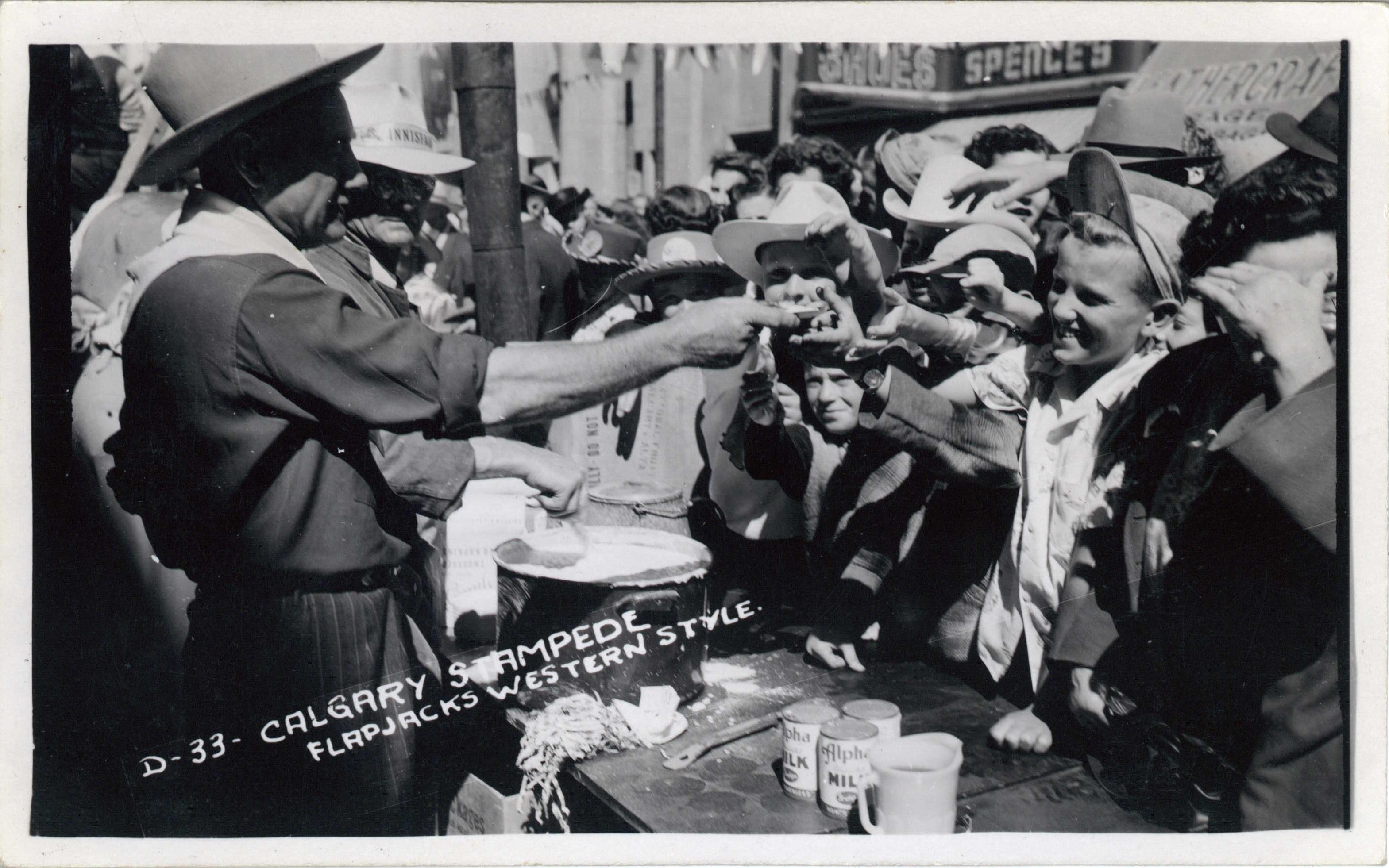
On 13 July 1923, the newspaper wrote: “Just how many city bylaws and statutes were broken by the howling, whooping, rip-snorting bunch of cowboys that he brought with him will never be known.
“Out came the old cookstove, and soon the pungent odor of wood smoke filled the air, to be followed shortly by the inviting aroma of sizzling hot cakes… Spectators fought to get to the front in order to bite into the luscious flapjacks that were being turned out by the outfit’s cook.”
The same year, a separate breakfast at the Old-Timer’s hut saw men gather to grill pancakes, which they served drizzled in maple syrup in a shack that looked like early homes of the west, harking back to the pioneers of the previous century. These Old-Timers’ breakfasts were carried on by the Southern Alberta Pioneers’ and Old-Timers’ Association, who continue to hold an annual stampede breakfast to the present day.
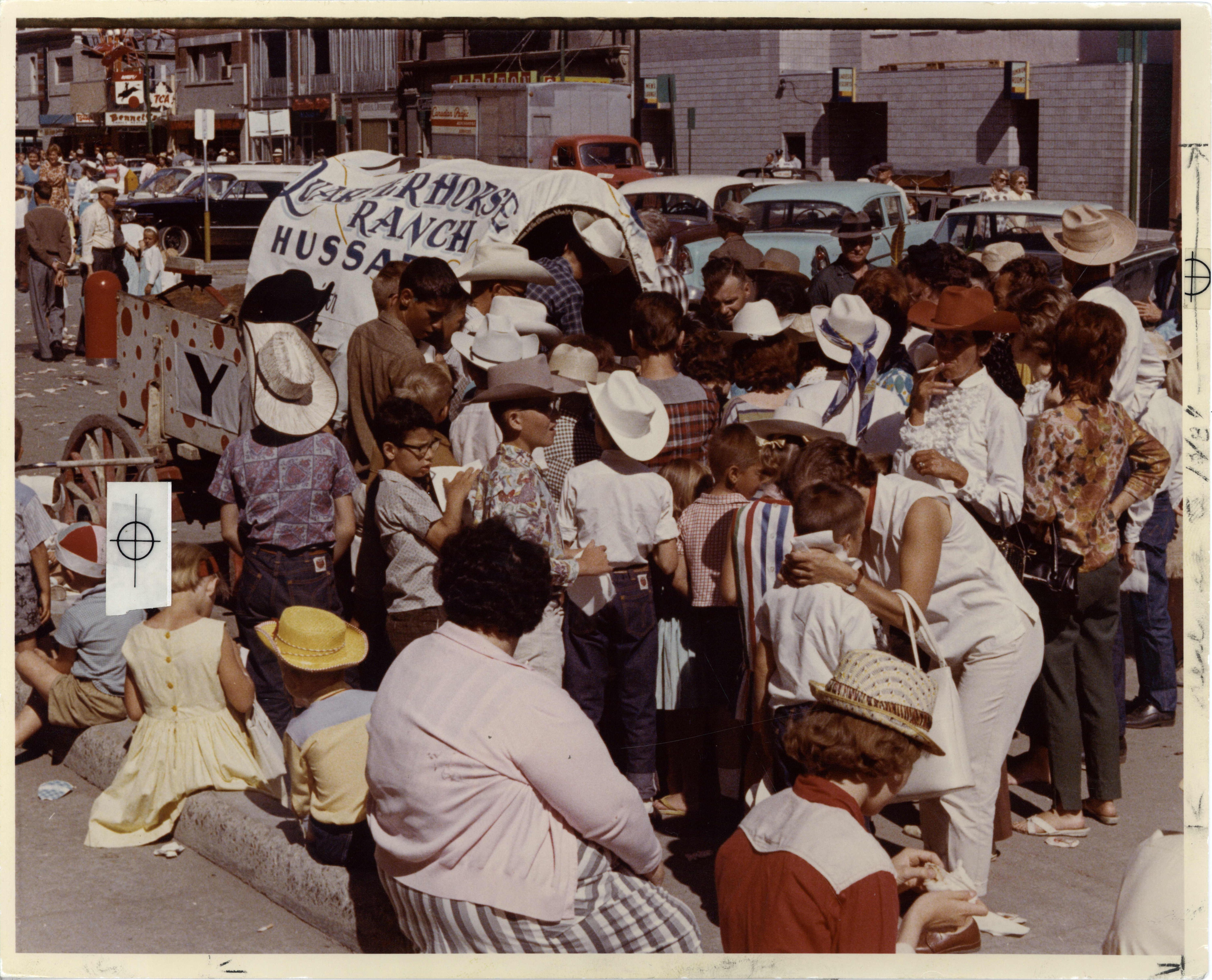
Through the 1920s the breakfasts grew into an annual tradition, with pancakes grilled at the hut and in the back of chuckwagons that were driven into downtown Calgary, often accompanied by sausages, ham, and eggs, welcoming the public and press as well as Old Timers and cowboys.
With the exception of 2020, when it was cancelled due to the Covid-19 pandemic, the Stampede has never missed a year, running through two world wars and a flood in 2013 that devastated the city leaving much of the event grounds under water – “come hell or high water” the show would go on, became the Stampede’s rallying cry.
Read more: The best ski holidays in Canada
As the self-billed “Greatest Outdoor Show on Earth”, the Calgary Stampede rolls into the Canadian city every July in a whirl of rodeo, music, arts, tradition and plenty of partying. For 10 days, the Stampede grounds – as well as bars, restaurants, businesses, shops and streets throughout the city – are taken over by locals and visitors in cowboy hats and boots, celebrating Alberta’s western heritage.
Rodeo takes centre stage, with bull riding, wagon racing, barrel racing, steer wrestling and Indigenous relay racing being held in the stadium every day. On the park grounds there are also four music venues with live performances featuring everything from rock and pop to hip-hop – although, naturally, county and western is a big focus.
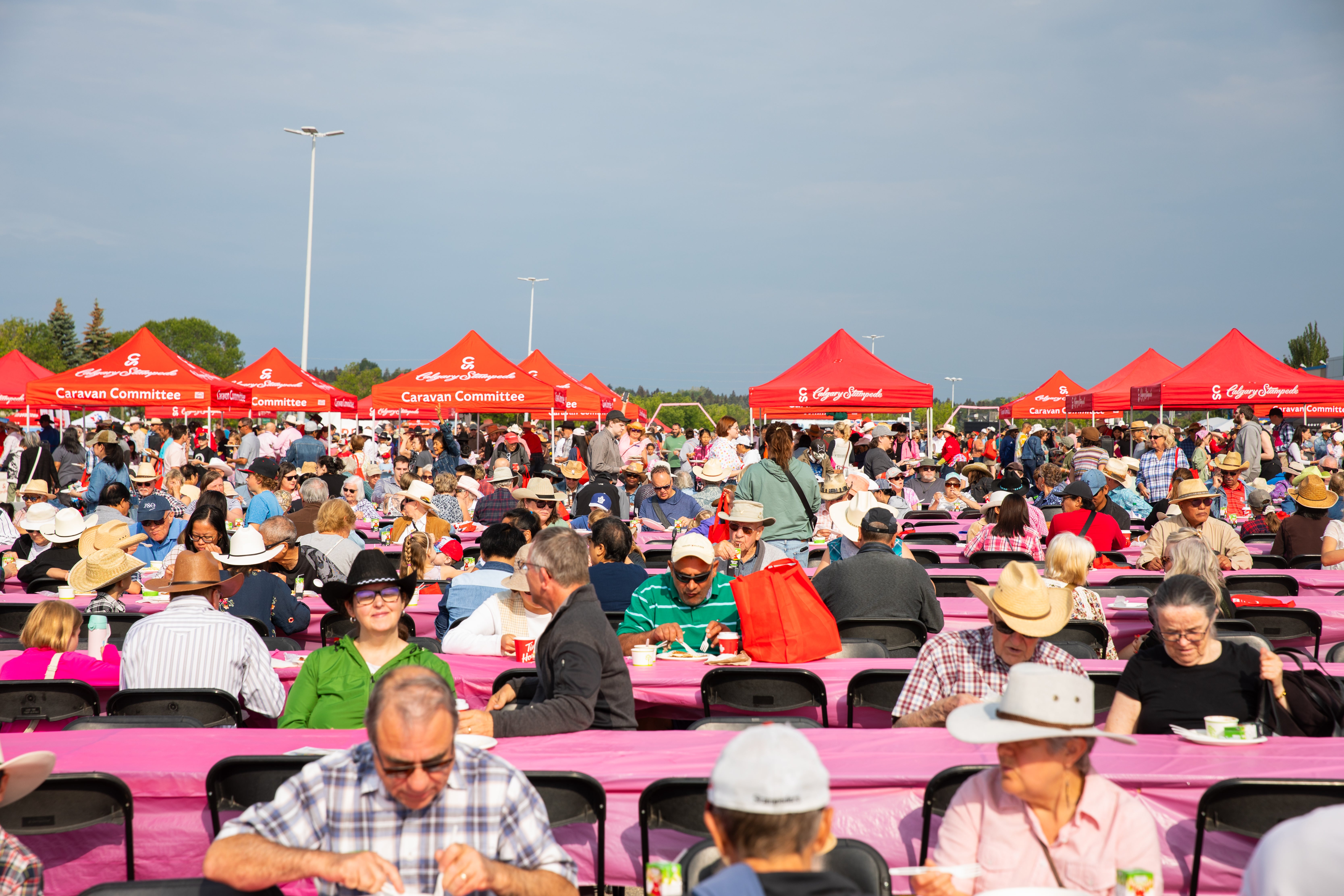
Since the first Stampede in 1912, visitors have also been able to learn about the culture and traditions of the Kainai, Piikani, Siksika, Stoney Nakoda, and Tsuut’ina First Nations. Now named Elbow River Camp, this area features 26 tipis each with a unique design where families display their traditional way of life. There is also an arena to watch dancing and storytelling, and stalls selling jewellery and art, along with bannock (a type of fried bread) and saskatoonberry jam.
In 2024, the event was attended by its largest crowd yet, with just shy of 1.5 million visitors passing through the Stampede grounds.
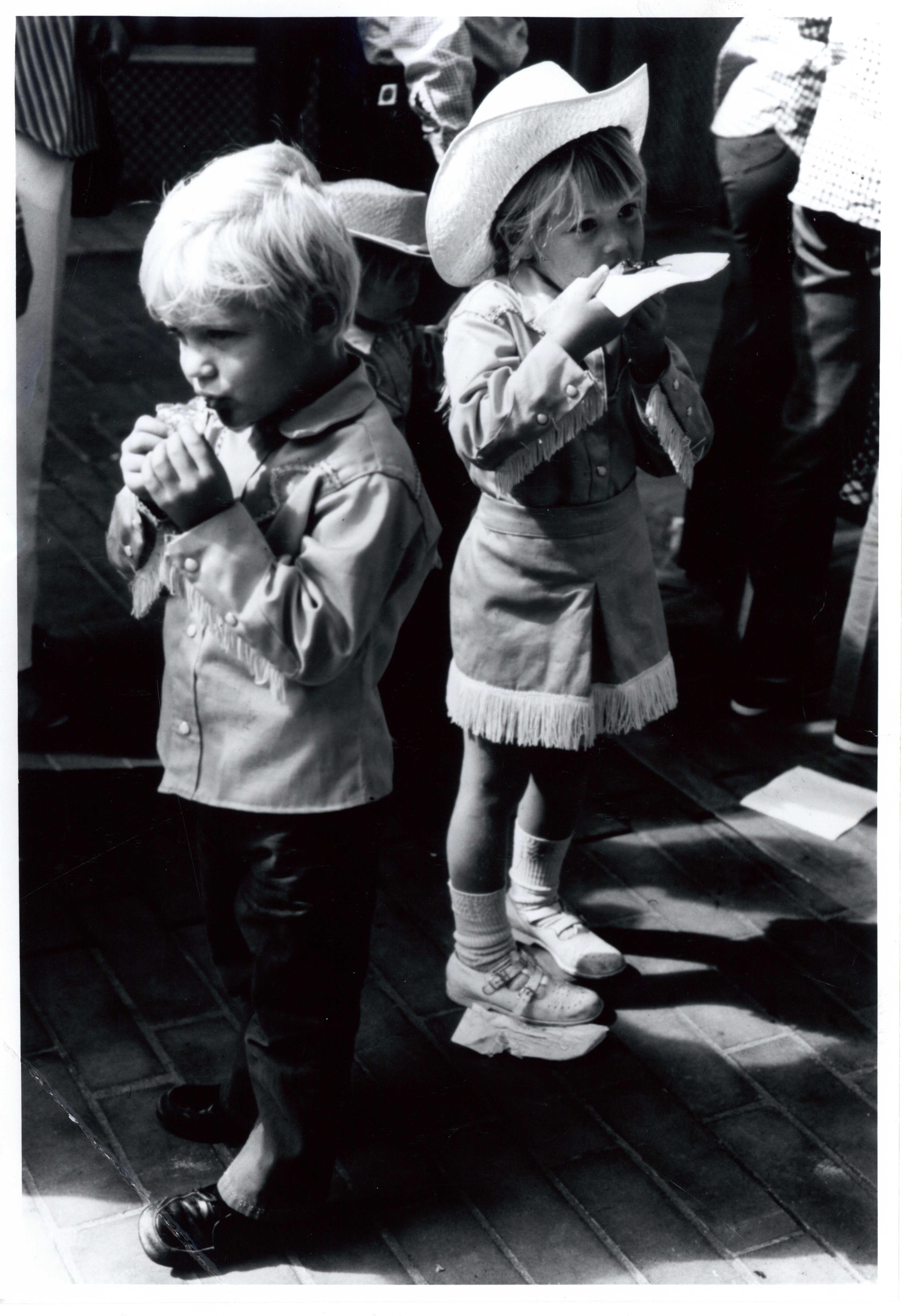
The pancake breakfasts are just one of many traditions celebrated during these 10 days; others include yelling “yahoo” rather than the more common cowboy cry of “yeehaw”, eating ‘inventive’ foods (in the past the offerings have included mealworm hotdogs, pickle lemonade, and deep fried bubble gum), and a strong commitment to volunteerism – 3,000 Calgarians gave their time to work at the Stampede this year.
Despite holding true to their old western roots, the nature of the pancake breakfasts evolved in the 1950s, with businesses, churches, and charities also holding their own events. Interestingly, politicians did too, with the events proving to be a means to network and entertain.
Integral to these breakfasts was, and is, cowboy culture. A 1982 information package for the Stampede stated: “If you had spent the night on the prairie with your saddle for a pillow, and the stars for a roof, then the flapjacks and bacon that a ‘cookie’ whipped up… would sit pretty warm and fulfilling in your belly.
“Here in Calgary, it doesn’t really matter to us that most of our guests now sleep in air-conditioned comfort… the flapjacks and bacon still fill a hole in your stomach. And when they are cooked under the blazing July sun, with just a touch of Rocky Mountain cool… they are as tasty as they were 75 years ago.”
The core value of free breakfasts served to the community still stands in 2024. Today, hundreds of events are held across the city in public parks, offices, community centres, shopping malls and churches. One of the most popular is the Ismali Muslim Stampede Breakfast, which is now in its 27th year, serving pancakes and eggs along with bharazi (a traditional east African dish of pigeon peas in coconut milk).
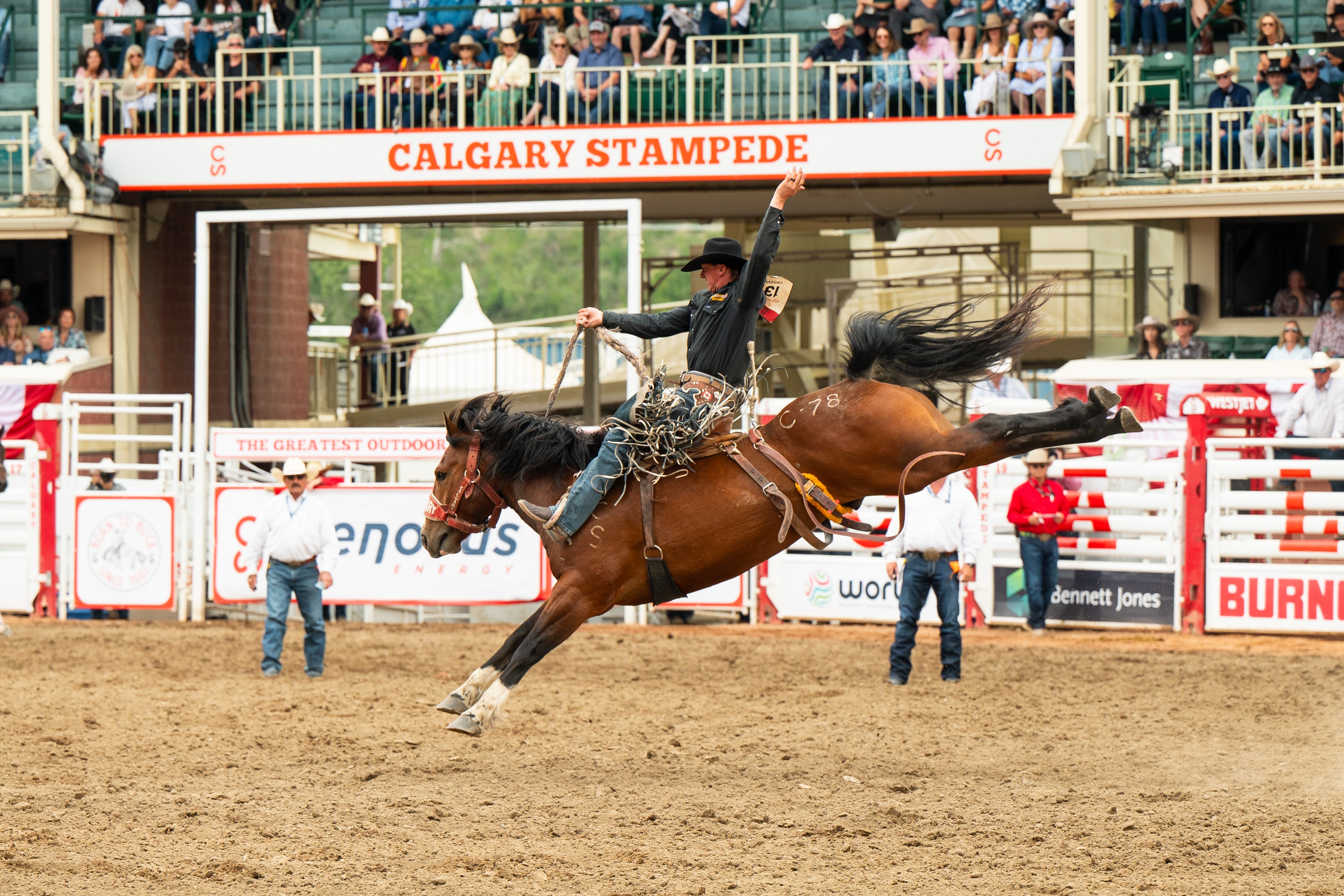
Other Stampede breakfasts feel more like festivals, with live music, drinking, dancing, costumes, face-painting and games. Some ask for a charitable donation or a contribution to a food bank, but the principle of free pancakes runs throughout.
Paul Patton, a retired geologist who has volunteered at the Calgary Stampede for the past four years, was playing drums as part of his band at the Calgary Auto Mall breakfast. He said: “It shows the hospitality of the Old West.
“It’s a tradition that people really enjoy – always have, and will continue to do so.”
Research used for this article was sourced by Calagray’s Sam Centre in the report ‘Honest-To-Goodness Pancakes: A History of the Evolution and Cultural Significance of the Stampede Breakfast from 1923-2000’.
Read more: This coastal road trip from Maine to Nova Scotia is the perfect sea-inspired getaway

 Fransebas
Fransebas 







